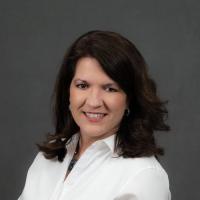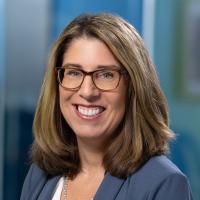The blueprint set forth by Massachusetts accountable care organizations to improve population health metrics and reduce costs can be applied to New York, after Centers for Medicare & Medicaid Services (CMS) approved its amended section 1115 demonstration in January.
That's according to Kim Prendergast, vice president of policy at MassHealth ACO Community Care Cooperative (C3), and Suzanne Wogelius, vice president of product management at Hyphen, a technology platform that connects care between payers, providers, pharmacies and community-based organizations.
Massachusetts' 1115 waiver was approved in 2018 and renewed in September 2022. The waiver created the Flexible Services Program to address food insecurity and housing needs of eligible members. Since then, C3 has noticed quantifiable health outcome benefits. It says more of its members with diabetes met goals for blood sugar control and fewer members relied on the emergency room for care, and data are soon to come on total cost savings.
Hyphen built a customized case management platform for C3, bringing in members from federally qualified health centers. Members are then referred to the appropriate social services organization, like a food bank, based on their needs where outcomes are tracked. The company supports 10 ACO partners in Massachusetts. MassHealth ACOs using Hyphen manage more than 85 community-based organization contracts and collaborate with 150 different providers.

"93% of individuals that we refer to the program get connected to support from those social service organizations," said Prendergast. She said that success rate is likely closer to 5% to 25% in New York today.
Section 1115 waivers are the authority CMS gives to state Medicaid agencies to use Medicaid dollars for health-related social needs. That can look like support for nutrition, housing and transportation.
The details of each waiver varies by states, both in terms of what the state is trying to accomplish and the mechanics of how the plan works. In Massachusetts, the program was run through ACOs as the hub, where ACOs asked organizations how they would allocate more funds. Usually, these groups said they would increase capacity or hire more staff.
Prendergast says the data are clear. These partnerships improve food security (members intake more fruits and vegetables and diabetes is better managed), boost housing situations (better housing stability scores) and members go to the emergency department less frequently.
"It's not surprising when you take care of those basic needs," she explained.
New York's waiver establishes 13 social care networks, instead of ACOs, using $500 million in funds across nine regions that connect the state with managed care organizations and community-based organizations. These networks will screen eligible members and develop a care plan.
"States are seeing someone needs to play that role," said Prendergast. "The mechanism looks a little bit different, but I think that ultimate approach, and the way it will feel for referrals, is relatively similar."
Wogelius believes the tech infrastructure investment promised in this program is critical to improving health outcomes.
"If you think about about New York, it's easy to get an Uber or food delivered," she said. "But if you're a person just coming out of the hospital, and you're concerned about food assistance, don't understand how to get transportation to a doctor's appointment, or you're dealing with homelessness, those are real challenges."

Hyphen's platform is designed to bring data sources together into one view to enable referrals to happen, while ensuring the solution is interoperable within the health center's existing system. C3 was able to sit down with Hyphen to ensure the referral process is easy for community health workers to navigate.
The New York state waiver, which has been approved until March 2027, includes more than $3 billion in investments for high-risk social needs, establishes base rates for safety net hospitals and the Medicaid Hospital Global Budget Initiative, authorizes nearly $700 million toward practitioner recruitment, gives the state substance use disorder demonstration authority and increases provider payment rates.
Social care networks will submit applications starting in March and funding will begin later this year.